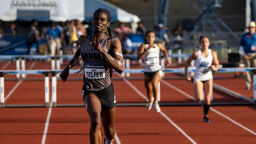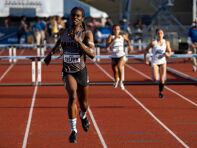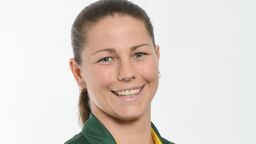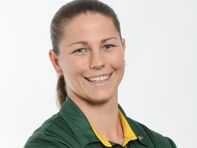Dr. Linda Greene’s resume lists an array of experience toward advancing equity in her native Ireland, and in the wider world. She’s currently the director of primary health care for Traveller Health — providing a tight-knit, much maligned and reclusive community in County Kildare with essential services.
To soccer fans in Ireland, she was a captain and fierce midfielder that won 14 national championships for Shamrock Rovers Ladies FC and University College Dublin. Some fans in the USA may remember her, as well. As a collegian at the University of South Carolina, she was a part of the beginning of the school’s women’s soccer program. In 1998, she was a key reserve in pacing the Gamecocks to their first NCAA tournament appearance. She also played in the fledgling women’s pro ranks in the U.S. for two seasons.
A common denominator in her playing experiences in both countries centers around inequalities that she touched on at length in a two-part feature for the Irish sports website The 42. It was looking at those inequalities that sparked her career off the pitch. Her PhD dissertation at University College Dublin centered around a study of elite lesbian athletes.
“I was very interested in the sporting inequalities that I had witnessed in my own career,” she told The 42. “I wanted the stories to be saved or documented before they were lost in terms of the elite lesbian athletic voice. How that was invisibilized in my experience.”
Greene also compared and contrasted how these systems played out in both nations. She noted her decision to take a scholarship at South Carolina may have cost her the chance to represent her country, despite being one of the top young women’s players in Ireland.
“The likes of Robbie Keane and Damien Duff, when they were getting offered contracts with the best clubs in those times, or getting a chance to go away and improve, that was welcomed,” she told The 42. “Whereas my experience was: ‘Oh actually, you’ll just kind of mess up your chances of an international career’. You have a really stark choice here. You can choose your career here, or you can choose representing your national team.”

In the U.S., Greene lived and played under the double-standard of women and American sporting culture. “When I was in Carolina, we were paraded before a men’s game. We were full-time athletes, so you’re muscular, you’re strong, you’re conditioned to be very aggressive in the tackle,” she remembered. “It was like when you stepped off the field, you were supposed to play a very different game. One of the Sundays, we were told to wear our best Sunday dress. We were all paraded for the men’s game in front of 8,000 people, as the women’s team. I just thought it was very interesting. Why not wear our training gear, and be paraded as athletes? Why are you asking us to wear a dress? In terms of gender performativity, it wasn’t comfortable at all.”
Also discussed was how Irish society, and Irish sport, had changed in regards to LGBTQ+ people. Despite leaps in society such as the successful marriage equality referendum in 2015, and the 2017 election of an out gay prime minister, being out and being in the game is still met with some reservations.
“With some people, some sponsors, some institutions, there’s still that residual homophobia that needs to be educated out and weeded out and challenged on a systematic level. Ireland is still only ranked 15th for LGBTI equality in Europe,” Greene noted. “We’ve come a long way, but we’ve a long way to go. And the fact that it’s still being used as a silencing tool, so to speak, is massive.”
Read more of Greene’s interview with the 42 by clicking here.







































